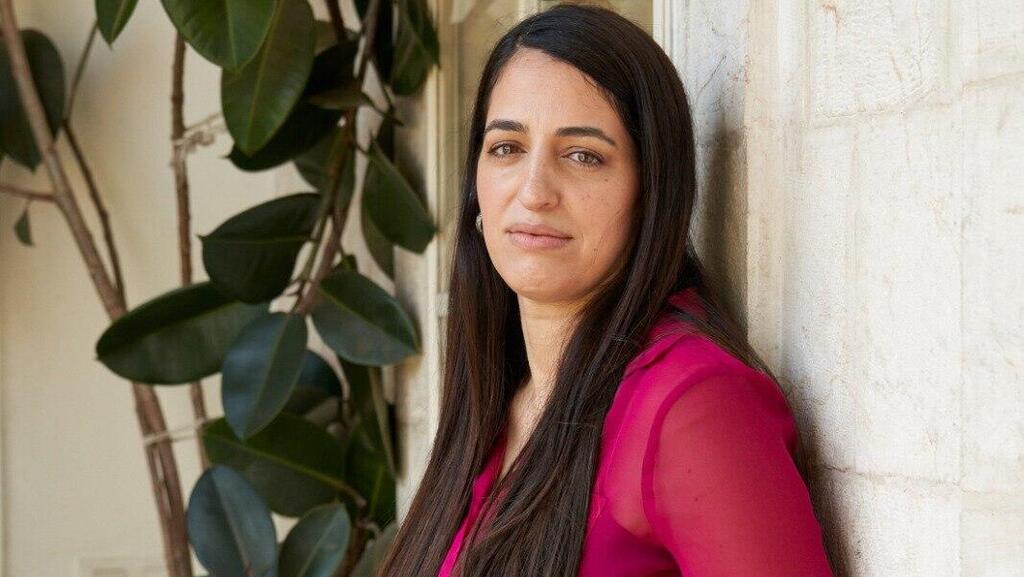Mor met her former husband when she was 20 years old. "We were very young and grew up together," she said. However, when the young couple started to debate whether to have a child, she started having doubts, and eventually decided she wanted to part ways. Mor's nightmare began when she discovered that in order to get divorced she needed her husband's approval.
More stories:
"He didn't want the divorce," she said. "We tried to go to mediation, but he was not open to the conversation. In order for him to agree to go to the rabbinate and say he wants to divorce me, I had to give him everything, including the apartment we bought together. He was not willing to give up anything. I was left with nothing in order to gain my freedom."
Mor's experience in the rabbinical court was "very traumatic," she recalled with tears in her eyes. "The rabbis didn't make eye contact with me and didn't speak to me. What I said or wanted was meaningless. They were very aggressive and spoke very poorly of me because I initiated the divorce. Only after he said there was no chance of reconciliation did they approve the divorce."
Orit Lahav, CEO of Mavoi Satum - a non-profit organization that provides legal and emotional support to women who have been refused a Jewish divorce, or get, said: "The Chief Rabbinate and rabbinical courts are official institutions in Israel that openly and explicitly oppress women. Once a woman is registered as married in the State of Israel, her ability to choose whether she wants to remain married is handed over to her husband and three more religious judges, who are, of course, male, and only they can decide whether to release her from the marriage."
5 View gallery


Orit Lahav heads Mavoi Satum, a non-profit group providing legal and emotional support to women who have been refused a Jewish divorce
(Photo: Mavoi Satum)
According to Lahav, women are coerced and forced to give up their rights in exchange for a divorce (get). "Many women feel degraded and voiceless. A woman who files for divorce must explain to the rabbinical court why she deserves to be divorced and is forced to discuss her intimate life in a room full of religious men. It is a horrifying experience," she explained.
One in three women experiences 'get' extortion
Michal, a mother of two children who fled from an abusive marriage, has already undergone 10 hearings in the rabbinical court. "I stood there, meeting after meeting, and voiced the same claims – that he was violent, that he hit me, that he tyrannized me, and controls me financially," she described.
"I repeatedly told them about the sexual abuse he subjected me to, that I was not allowed to say no. In one of the hearings, I brought pictures of sex toys he bought and forced me to use, hoping that it would make them believe me. These are experiences I haven't shared with anyone else," she said.
Michal said that "despite trying to illustrate time and time again the violence and pain I dealt with, in their eyes, it was not a reason for divorce. They asked, 'Was he with other women?' 'Did he violate the laws of niddah?' It took me a long time to gather the courage to break up with him and share what I went through."
To this day, Michal has yet to receive a get. "He fled the country a year ago and, since then, nothing has happened. It's a great frustration. I believed that it was right to get married by the rabbinate – religiously and legally and according to tradition, and I regret it, there's no doubt at all. I could have been in a different place long ago. My life is stuck," she said.
Among the various government measures that have the potential to harm women's rights, a preliminary reading of a bill that would expand the powers of the rabbinical courts to adjudicate civil matters was passed in recent days. Additionally, there is a memorandum of a law that aims to allow the rabbinical courts to adjudicate the issue of child support even without the consent of both parties, contrary to the current situation where if one of the spouses requests transferring the child support case to the family court, they can do so.
"One in three women experiences 'get' extortion and are forced to give up their rights to free themselves from marriage. One in every 10 court procedures in the rabbinical court lasts over two years and causes a case in which the woman and hundreds of other women are refused a get each year and join the ranks of the agunot (chained women)," according to a position paper drafted by Bonot Alternativa (Building an Alternative), and signed by many other women advocate organizations.
"Why give more power to an institution that acts out of inequality, lack of transparency, and according to laws from thousands of years ago?" asked Lahav.
'Why do strange men need to know my most personal details?'
Precisely because of these reasons, Naomi chose not to marry through the rabbinate, but she was forced into an encounter with this system when her daughter got married that way.
"I underwent fertility treatments for several years to get pregnant. It turns out that the consequence of this is that our lineage is considered unknown. There's nothing more offensive than that. We received a letter stating that in order for her to register for marriage in the rabbinate, she had to open a case in the rabbinical court – with me," Naomi said.
During the proceedings, Naomi says she was forced to answer intimate and personal questions. "For example – why couldn't I get pregnant naturally? I told them about a chronic illness I have, I told them that I've been experiencing gynecological problems since the age of 12, and that I had one fallopian tube removed after I had an ectopic pregnancy. These are things I haven't even shared with people closest to me," according to Naomi. "Instead of empathy, they explained to me that there are women in similar situations who managed to get pregnant naturally. It's a terrible feeling. I was there with tears in my eyes the whole time. Why do strange men need to know my most personal details? Who gives them the authority to do such a thing?"
Expanding the authority of the rabbinical courts is just one part of the government's actions that could widen gender gaps.
"It's a trend, and one of its prominent steps is the cancellation of promoting women's status," said Moran Zer Katzenstein, founder of Bonot Alternativa. She said that in recent days "in Bnei Brak, a bus was blocked because the driver was a woman. Public space is narrowing for women."
The management of the rabbinical courts told Ynet: "The rabbinical courts treat women and men who appear before them with great respect during their difficult hours. The issues discussed are private and prohibited from publication. When the judges question the parties, especially women, they do so with caution, delicacy and sensitivity – more than any other judicial system in the country, such as family courts."





